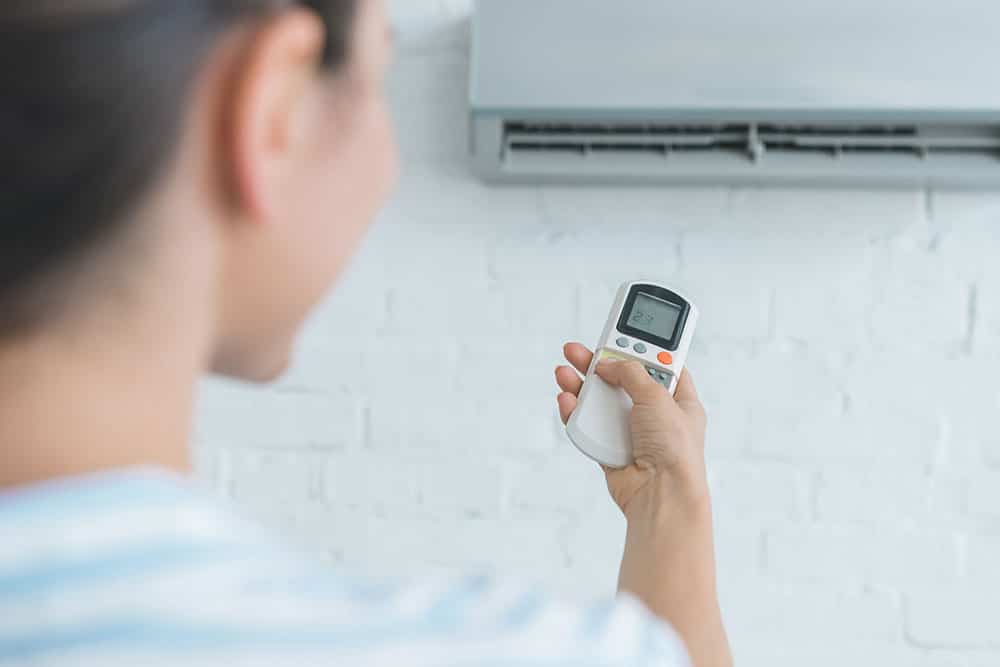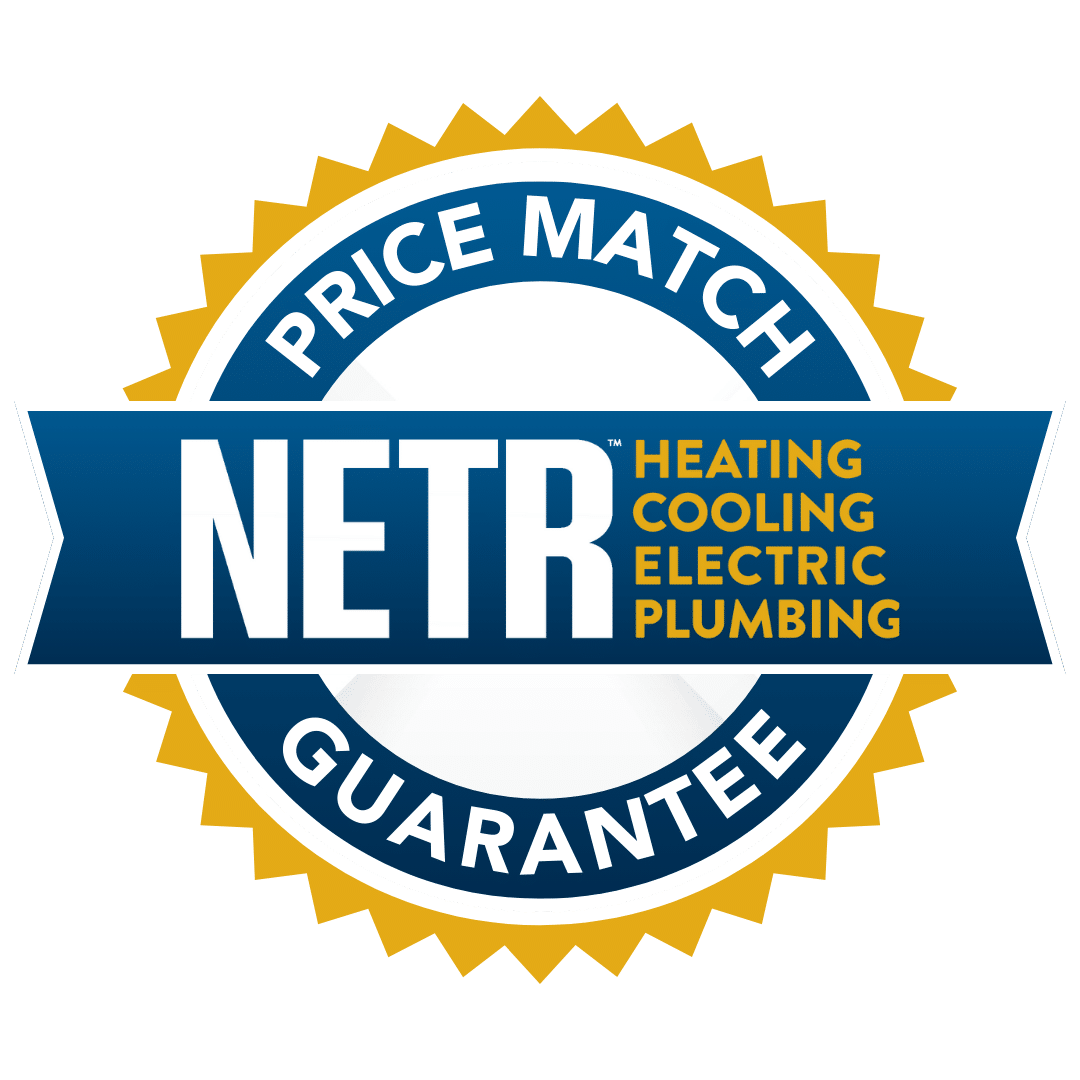Making the switch to an electric heating and cooling system is an eco-friendly way to upgrade your HVAC and maximize the efficiency and comfort of your home. But before getting started, it’s important to do some basic research and consult a professional to make sure you’re making the best possible decisions. Without proper planning, a change in your HVAC system could be a rough transition.
Keep reading to learn the most common mistakes people make when switching to electric heating and cooling, and how you can avoid them. If you’re ready to take your home heating and cooling to the next level, contact us at N.E.T.R., Inc. today.

Mistake #1: Falling for the Myths
Unfortunately, there are a lot of persistent myths about electric heating, and these tall tales sometimes scare people away from using these systems. The biggest myth is that electric heat pumps cannot keep up in a cold winter climate like New England. While that may have been true 30 years ago, this is no longer the case.
With a HyperHeat system, you can heat your home efficiently in sub-zero temperatures. In fact, during a severe cold snap in Boston in February 2023, heat pumps proved that they were up to the task of heating homes effectively through frigid Northeast temperatures without issue. At N.E.T.R., Inc., we didn’t receive any service calls for new heat pumps during that cold snap.
Mistake #2: Using the Wrong Air Filter
It’s important to protect your home’s indoor air quality, but choosing an overly restrictive air filter for your new HVAC system could cause issues. Restrictive air filters can affect airflow, forcing your system to work harder than it needs to and aging it more quickly.
If you want your HVAC system to both meet your heating and air quality needs, talk with an HVAC installer about your options. Many electric air source heat pumps come with advanced filtration systems featuring plasma, ionic, or HEPA filters.
When you invest in a system that comes with advanced filtration, you don’t need to look for aftermarket filters that may end up not working correctly with your system. Instead, you can rely on the built-in filters to catch dust and allergens. But don’t forget, you have to follow the filter cleaning instructions for your model.
Mistake #3: Forgetting About Regular Maintenance
Proper maintenance is a crucial part of maximizing your HVAC system’s longevity and performance. That’s why it’s critical to follow your installer’s advice to the letter when it comes to the inspection schedule, maintenance schedule, and cleaning requirements. To stay on track, you may want to sign up for a ductless maintenance plan.
Also, be careful if you decide to clean your own ductless equipment. There is a widespread belief that harsher cleaning solutions yield better results, and in some cases, that’s true. But it’s not the way to go when it comes to your heating and cooling system.
Harsh chemicals or abrasive scrubbing tools can cause significant damage to the various components of your HVAC system. Using the wrong tools and cleaning solutions can weaken the system’s efficiency over time, eventually leading to more expensive repairs and the need for a full replacement. Always follow the manufacturer’s suggestions when it comes to cleaning and maintenance.
Mistake #4: Not Planning Ahead for Power Outages
Electric heating and cooling systems are vulnerable during power outages. It’s important to note, however, that this is not unique to electric HVAC systems, and gas appliances also use electricity, just a smaller amount.
Planning ahead for power outages can ensure that you still have access to heating and cooling even if your power fails. Luckily, there are all kinds of options that can work as a backup when the power grid fails, such as a whole home generator or solar batteries.
Mistake #5: Selecting the Wrong HVAC Installer
Choosing the right HVAC installer for the job is a critical component in your system’s success. This is an area where you don’t want to make a choice based solely on cost. Don’t choose the cheapest option. Instead, focus on value by considering reviews, experience, certifications, and credentials.
Picking the cheapest installer may save you money in the short term, but you’ll likely spend far more than that on repairs, necessary upgrades, and higher power bills caused by a poorly installed system.
To protect your equipment and safeguard efficiency, look for an installer with in-depth experience in electric heating and cooling systems. Also, you should choose an installer that will adjust their recommendations and approach based on your home’s unique needs.
Finally, consider their credentials, and look for an installer who has completed high levels of dealer training. Don’t be afraid to contact multiple companies until you find the right fit.
Mistake #6: Not Winterizing Your Home
Not winterizing your home before the cold months can lead to higher energy bills, uncomfortable indoor temperatures, and extra wear and tear on your HVAC system. Inadequate insulation often fails to keep warm air in, while unsealed gaps around windows and doors can allow cold air to enter. Addressing thin insulation and sealing leaks can help protect your system and improve energy efficiency for years to come.
Mistake #7: Not Upgrading Your Electrical Panel
HVAC systems draw a lot of power, especially during peak usage, so you could experience major issues if your electrical system isn’t designed to handle this load. An outdated electrical panel can lead to circuit breaker problems, poor heating and cooling performance, and even the risk of fire. By upgrading your panel first, you can make sure your new system has a reliable and safe power source with which it can operate effectively.
Mistake #8: Getting the Wrong Size System
One of the most common (and expensive) mistakes that homeowners make when choosing an electric HVAC system is selecting one that is either too large or too small for their space. An oversized system will cycle on and off too frequently and wear your system down, while an undersized unit will struggle to keep your home comfortable, especially during extreme temperatures.
Proper system sizing involves a detailed load calculation based on your home’s square footage, insulation, layout, and even how much sun each room gets. Your N.E.T.R., Inc. installer will take all of this into account for you.
Mistake #9: Forgetting to Send Your Rebate Paperwork
Mass Save can help you save thousands of dollars on a new electric heating and cooling system, but not if you forget to mail your rebate paperwork after your purchase. That’s why N.E.T.R., Inc. gives you your rebate amount upfront and files the paperwork on your behalf. That way, you get immediate savings and don’t have to worry about sending your receipt within the appropriate time frame after installation.
Contact Us to Learn More About the Benefits of Electric HVAC
Whether you’re focused on whole home electrification, boosting efficiency, reducing your carbon footprint, or just improving the comfort in your home, an electric mini split can tick all those boxes.
Ready to upgrade your home and choose a more efficient heating and cooling system? Let’s talk about your options and how we can help. At N.E.T.R., Inc., we have completed extensive dealer training on electric mini splits, and we have decades of experience helping people in the Boston area and beyond improve their heating and cooling.
When you contact us, we never try to sell you anything you don’t need. Instead, we connect you with a comfort consultant who helps you select and customize the perfect electric heating and cooling system for your home. Ready to learn more? Then, contact us today.

